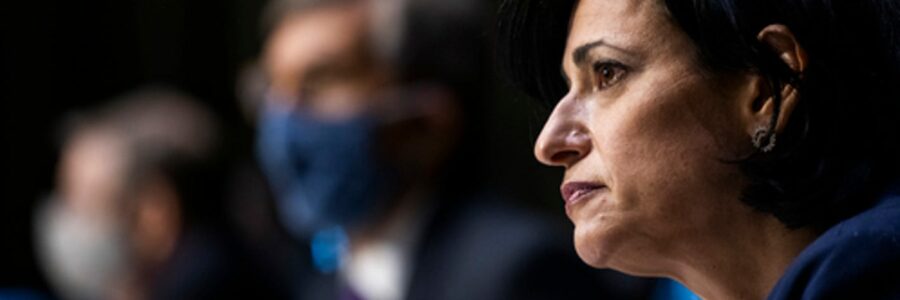
Many Americans don’t trust their public health system during COVID-19 pandemic, survey shows
The U.S. public health system was thrust into the limelight by the coronavirus pandemic, and a survey published Thursday found many Americans aren’t happy with its performance.
According to the survey, conducted by the Robert Wood Johnson Foundation and Harvard T.H. Chan School of Public Health in February through March, ratings of nation’s public health system declined from 43% in 2009 to 34% in 2021.
Positive ratings for the Centers for Disease Control and Prevention fell overall from 59% in 2009 to 54% in 2021. Health experts say distrust and the politicization of public health measures contributed to Americans’ negative view of health institutions.
“How the public sees public health is incredibly important,” said Dr. Robert Blendon, co-director of the survey and professor of health policy and political analysis at Harvard T.H. Chan School of Public Health. “When it comes to trust with health information, which is the heart of what public health is about, they’re much more likely to trust clinical physicians and nurses than public health institutions and agencies.”
Fewer than four in 10 adults report having “a great deal” or “quite a lot of trust” in the National Institutes of Health (37%), the Food and Drug Administration (37%) and the Department of Health and Human Services (33%).
Health experts say the politicization of public health measures such as masking, travel restrictions and stay-at-home orders also has influenced public opinion.
The survey found only 27% of Republicans said they had “a lot of trust” in the CDC, compared to 78% of Democrats.
“We have not had another pandemic that has been politicized by party … Nobody had a Republican or Democratic view on polio vaccine. It just didn’t exist,” Blendon said. “The minute that happens, people of the party determine what’s going on based on their political views regardless of the facts.”
Despite people’s negative opinion about federal agencies, they still regard them as an important pillars of the nation’s health system.
‘Black fungus’:Fungal infection appearing more frequently among COVID-19 patients in India. What to know about the deadly infection.
Vaccine Q&A: Younger teens could soon get the Pfizer-BioNTech COVID-19 vaccine. Your questions answered
The survey found 72% of survey respondents said public health agencies are “extremely” or “very important,” with 71% in favor of substantially increasing federal spending to improve public health programs.
Health experts say local health departments and federal agencies should utilize the public’s positive perception of health care providers to communicate public health messages. According to a Gallup poll cited in the survey, public opinion of the medical system increased from 36% in 2009 to 51% in 2020.
Both major political parties had high levels of trust for their health care workers with 80% of Democrats and 70% of Republicans saying they had “a lot of trust” in them.
“People know their doctors, they know their nurses,” said Dr. Alonzo Plough, vice president of research-evaluation-learning and chief science officer at the Robert Wood Johnson Foundation. “A major understanding of health isn’t really prevention in public health, but it’s going to the doctor when you aren’t feeling well.”
Follow Adrianna Rodriguez on Twitter: @AdriannaUSAT.
Health and patient safety coverage at USA TODAY is made possible in part by a grant from the Masimo Foundation for Ethics, Innovation and Competition in Healthcare. The Masimo Foundation does not provide editorial input.
Source: Read Full Article